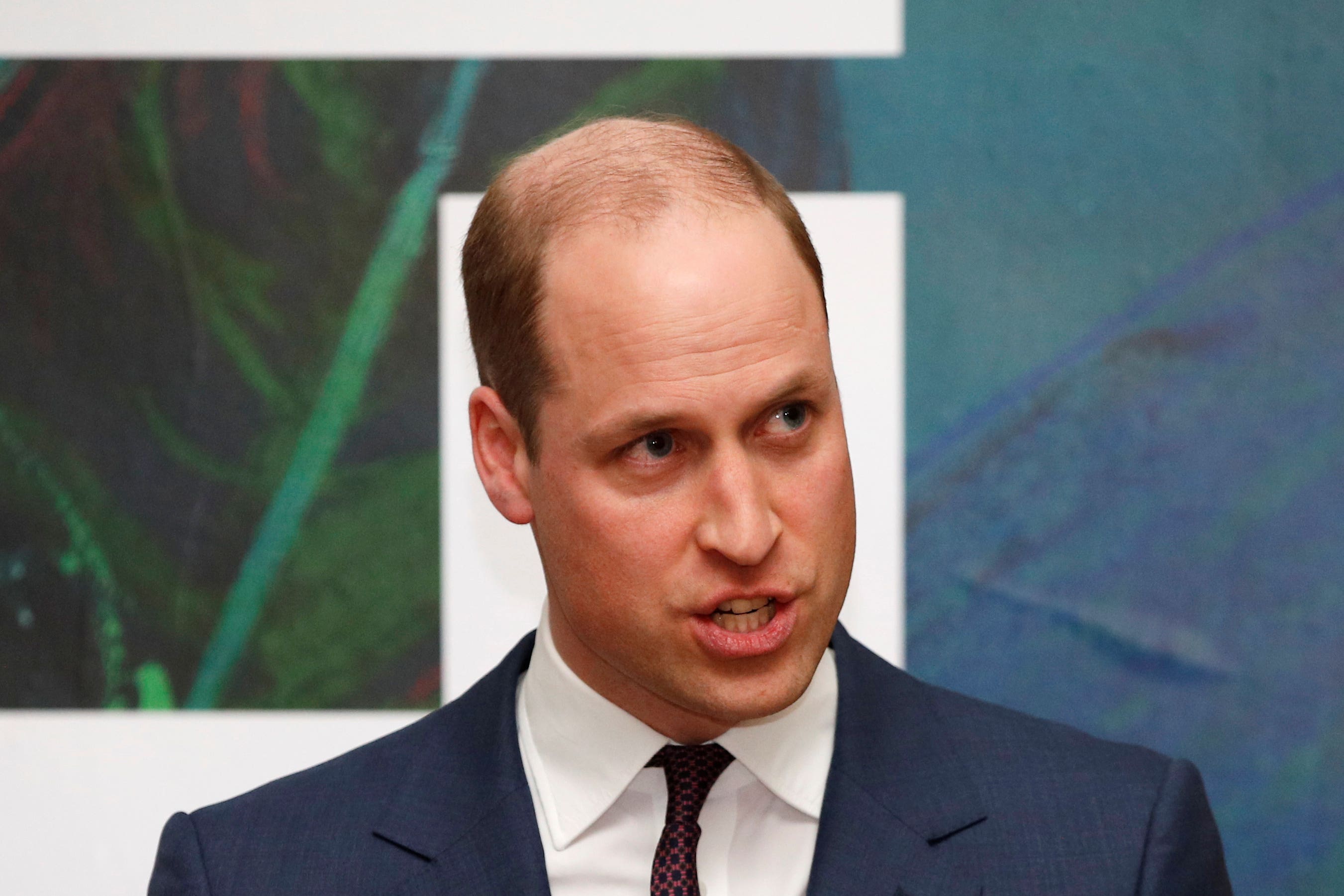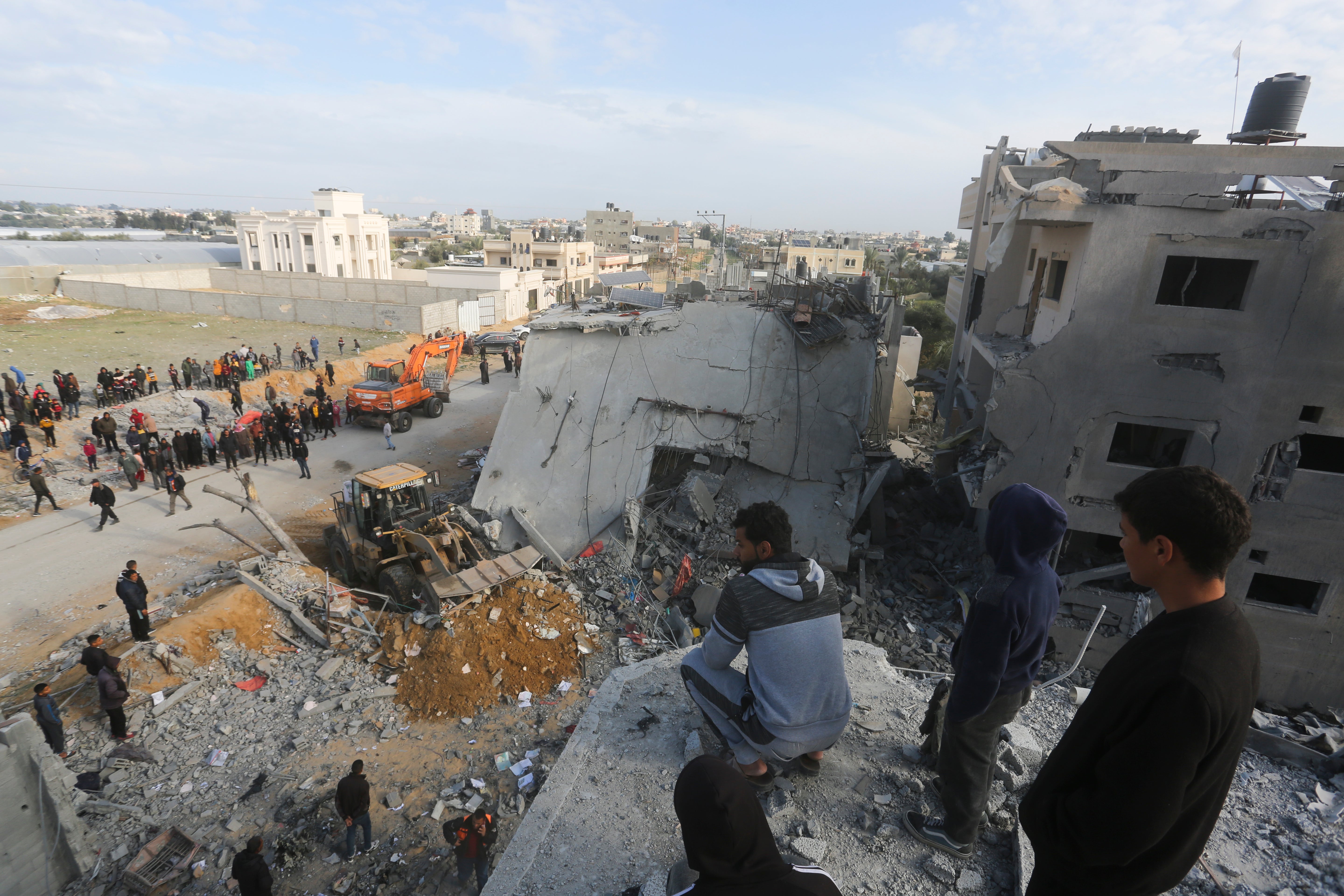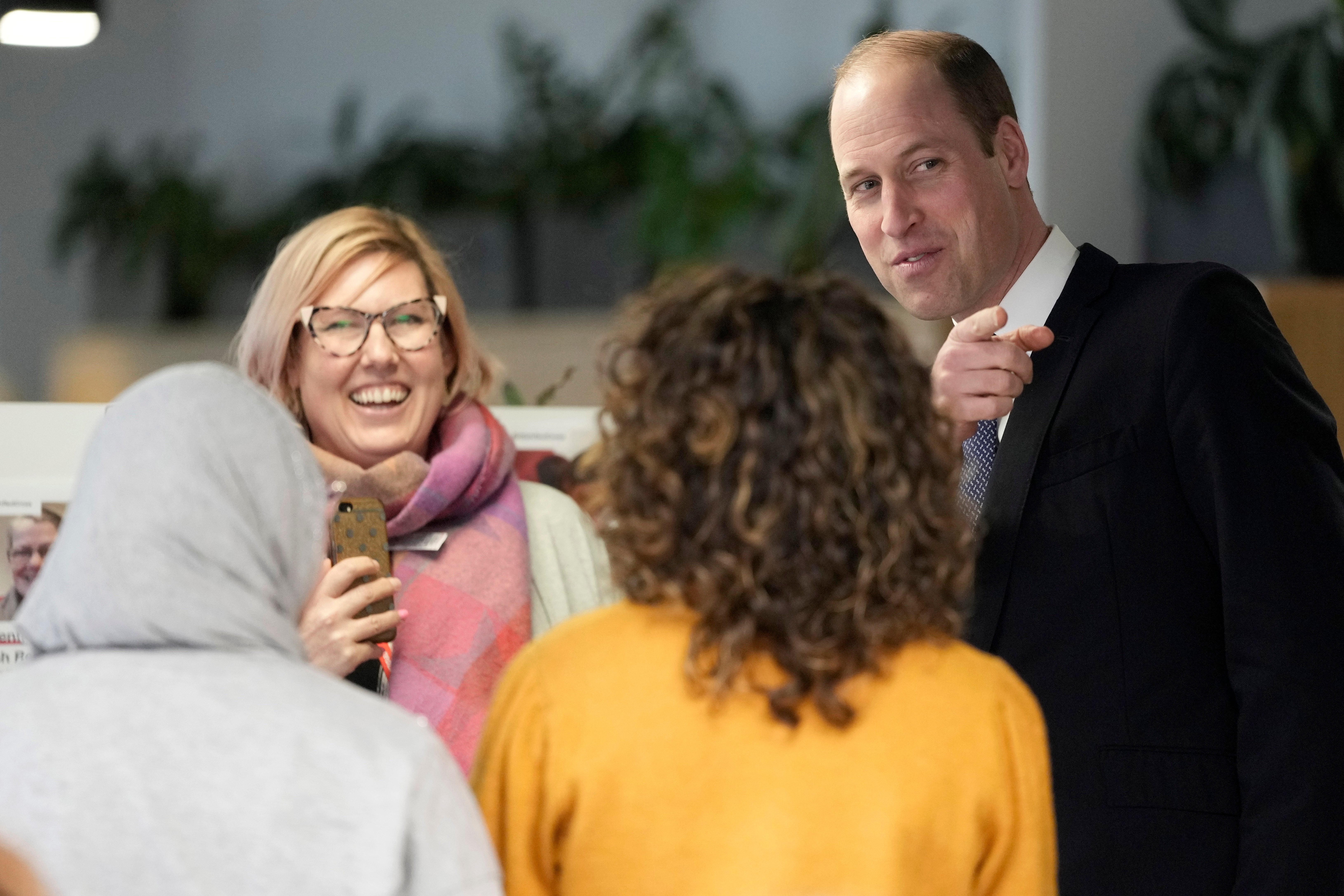Prince William calls for Israel-Hamas fighting to end ‘as soon as possible’ in rare statement on crisis
Prince of Wales says aid must be allowed in and hostages be released – as US vetoes UN resolution for immediate ceasefire


Prince William has made a rare intervention into foreign policy to express his deep concern over the “terrible human cost” of the war in Gaza, calling for an end to the fighting between Israel and Hamas “as soon as possible”.
Warning that “too many have been killed” since Hamas’s massacre on 7 October, the heir to the throne pushed at the traditional diplomatic boundaries of his royal role as he stressed the importance of achieving a “permanent peace” in the region.
Downing Street welcomed the Prince of Wales’s intervention and claimed his pleas were consistent with Rishi Sunak’s own position on the conflict, with No 10 insisting Britain was speaking with “one voice as a nation”.
The move comes after Sir Keir Starmer’s Labour Party also shifted its stance to call for “the fighting to stop now”, having been warned that if he did not, he faced a major rebellion in a crunch Commons vote on Wednesday on an SNP-led motion calling for an immediate ceasefire.
Concerns among Israel’s allies are mounting over its threatened ground invasion of Rafah, the southern city serving as a refuge for many of the 1.9 million Palestinians already displaced by the months-long conflict, reported by Hamas authorities to have claimed nearly 30,000 lives in Gaza.
But despite urging restraint in Rafah, Joe Biden’s administration once again vetoed a widely backed UN resolution on Tuesday calling for an immediate ceasefire, while Britain abstained. Washington instead floated a rival resolution supporting a pause in Gaza linked to the release of all hostages.
In his own rare political intervention, issued as his father King Charles pauses public-facing duties following his cancer diagnosis, Prince William insisted Britain and its allies must not “succumb to the counsel of despair”.
In a statement issued ahead of visits to the British Red Cross headquarters in London, and to a synagogue to discuss the global rise in antisemitism, the prince said: “I remain deeply concerned about the terrible human cost of the conflict in the Middle East since the Hamas terrorist attack on 7 October.

“Too many have been killed. I, like so many others, want to see an end to the fighting as soon as possible. There is a desperate need for increased humanitarian support to Gaza. It’s critical that aid gets in and the hostages are released.
“Sometimes it is only when faced with the sheer scale of human suffering that the importance of permanent peace is brought home.
“Even in the darkest hour, we must not succumb to the counsel of despair. I continue to cling to the hope that a brighter future can be found and I refuse to give up on that.”
The government was briefed in advance via the Foreign Office about the prince’s comments and meetings, and No 10 insisted William’s comments echoed those made previously by Rishi Sunak.
“The prime minister has said before on a number of occasions that too many civilians have lost their lives – I think Mansion House is an example where he made that point,” a No 10 spokesperson said, referring to the speech in which the PM said Israel had both a “right and duty” to “go after” Hamas.

“We want to see an end to the fighting in Gaza as soon as possible, so it is consistent with the government position and we welcome that intervention,” said No 10. “It is important that we speak [with] one voice as a nation.”
The prince’s statement goes even further than the statement he and the Princess of Wales issued in October, to “utterly condemn” Hamas’s attack and express their “profound distress” at the “devastating” eruption of violence.
While his comments were hailed by Rory Moylan, the British Red Cross’s region chief in the Middle East, as “extremely important” in raising awareness, former Ukip leader and GB News host Nigel Farage said: “I'm not sure that our future king should be doing this. He should stick to the Baftas.”
Israeli government spokesperson Eylon Levy responded: “Israelis of course want to see an end to the fighting as soon as possible, and that will be possible once the 134 hostages are released, and once the Hamas terror army threatening to repeat the Oct 7 atrocities is dismantled.
“We appreciate the Prince of Wales’ call for Hamas to free the hostages. We also recall with gratitude his statement from [11 October] condemning Hamas’ terror attacks and reaffirming Israel’s right of self-defence against them.”
Prior to becoming King, Charles – who has made championing inter-faith bonds a priority – carried out his first official tour of Israel and the Occupied Palestinian Territories in 2020, in what was the highest-level visit by a member of the monarchy to Israel and the Palestinian areas.
He visited the grave of his grandmother Princess Alice, who was famed for offering refuge to Jewish people during the Second World War in Nazi-occupied Athens.
William also travelled to the region in 2018, and told Red Cross executives on Tuesday that his visit had made a “lasting impression” on him and that he has since followed the region closely.

According to the Hamas-run Gaza health ministry, nearly 30,000 Palestinians have been killed and almost 70,000 injured since Israel began its retaliation for the cross-border massacre on 7 October, in which Israeli authorities say more than 1,200 people were killed.
Having already displaced more than 1.9 million people across Gaza, Israel is now threatening to invade the southern city of Rafah unless all hostages are freed by Ramadan, likely to start on 10 March.
With concerns mounting, Labour leader Sir Keir Starmer met with his shadow cabinet ahead of a crunch vote in the Commons on Wednesday to discuss an SNP-led motion which will call for an “immediate ceasefire” and “an end to the collective punishment of the Palestinian people”. His party has now published an amendment to the SNP motion, which also calls for a ceasefire but stops short of accusing Israel of a war crime, while clarifying that Labour does not want Israel to stop fighting so long as Hamas threatens violence.
SNP Westminster leader Stephen Flynn welcomed the shift in stance, saying: “Through parliamentary pressure we have inserted a backbone into the Labour Party.”
Additional reporting by PA
Join our commenting forum
Join thought-provoking conversations, follow other Independent readers and see their replies
Comments
Bookmark popover
Removed from bookmarks